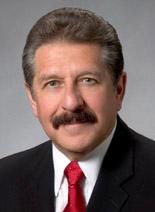Union OKs strike authorization

:
March 31, 2007
UPDATED: 7:02 p.m., Mar. 21
California Faculty Association members sent out a strong message today by overwhelmingly voting in favor of a strike authorization.
Kevin Wehr, assistant sociology professor, announced that Sacramento State had a 94 percent voting turnout and that 96 percent of those voting favored the authorization at a general faculty meeting.
“This shows us that the faculty is getting restless systemwide,” Wehr said.
Of the 8,129 faculty members who voted, 94 percent voted yes, according to a CFA press release. The systemwide voter turnout was 81 percent.
President Alexander Gonzalez said he was not surprised that the union’s vote was so one-sided.
“It’s their prerogative,” Gonzalez said in a telephone interview. “It’s a pretty strong statement.”
Both sides agree that CSU professors and lecturers are paid less than peers at comparable institutions. But administrators said they made an offer to increase wages by nearly 25 percent over the next three years.
Union leaders dispute that most faculty would receive that much, questioning the mechanics of how the raises would be structured.
Gonzalez said in the past 22 months, the negotiations between the CFA and the CSU have had a high level of exchange and debate.
Whatever job action the union decides to take, Gonzalez said that he plans to stay in contact with the CSU Board of Trustees and may visit the Long Beach office in April.
“We are preparing,” Gonzalez said.
Gonzalez said the campus will serve the students needs and operate normally if a strike occurs.
Gonzalez said that ultimately, students come first.
“I think that the faculty will agree with me,” Gonzalez said. “The faculty are not trying to harm students. This is a legal process.”
He added that he couldn’t control a strike.
“It’s an individual decision for the faculty to strike,” Gonzalez said.
This semester, faculty and staff have demonstrated their dissatisfaction with Gonzalez various times.
In January, they protested against the campus president’s 4 percent raise, which was authorized by the trustees. Faculty also held a silent protest during his spring address; they have also marched through Sacramento Hall, where Gonzalez’s office is located. Gonzalez said he doesn’t understand why faculty members are protesting against him, because he said he has no authority to grant raises.
“I’ve been supportive of faculty raises,” Gonzalez said. “I think they’re underpaid.”
CFA President John Travis said in a press release the union is frustrated that money has been used for projects and executive pay raises instead of being directed for faculty raises.
“The faculty has spoken loud and clear — they are tired of the way which they are being treated by CSU Administration,” Travis said in the press release.
“We do not want to strike. We want to achieve a settlement, but the administration of the CSU has proven extremely obstinate for the past six months,” Travis said.
The vote allows the CFA’s board of directors to set dates and locations for the union’s rolling strikes.
In a statement, CSU Chancellor Charles Reed said administrators were doing everything they could to reach a settlement but that if faculty members go on strike, the system has plans in place to minimize disruptions.
Gov. Arnold Schwarzenegger issued a statement saying he was optimistic talks would resume.
“Faculty and administrators must work together in good faith so that our students, who are bettering themselves through receiving a quality college education, do not become the unintended victims of a looming strike,” Gov. Schwarzenegger said.
According to the press release, “The labor negotiating period under state law ends on Monday, March 26, ten days after an independent mediator issued a report recommending how the dispute should be settled,” at which point the union will decide what to do.
The fact-finding process will likely not be made public, Gonzalez said.
In the statement, CSU said the fact-finder’s report would make clear the administration has “gone to great lengths” to try to reach a settlement.
“This is probably necessary to get us to a point to some kind of resolution,” Gonzalez said.
Jordan Guinn and The Associated Press contributed to this report.
Gamaliel Ortiz can be reached at [email protected]















































































































































